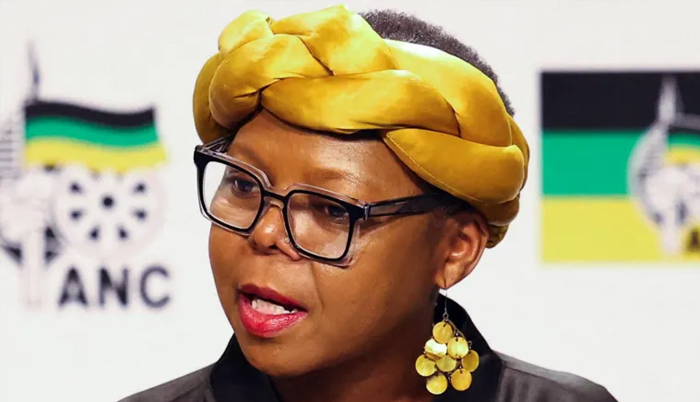
PRETORIA, June 6 (NNN-AGENCIES) — South Africa’s African National Congress (ANC) has suggested forming a government of national unity after losing its parliamentary majority in last week’s elections.
It says it has reached out to all parties but negotiations are still underway.
“The results indicate that the South Africans want all parties to work together,” ANC spokesperson Mahlengi Bhengu-Motsiri told journalists.
The ANC got about 40% of the vote, with the centre-right Democratic Alliance (DA) on 22%, the MK party of former President Jacob Zuma on 15% and the radical Economic Freedom Fighters on 9%.
This was the first time the ANC has lost its majority since Nelson Mandela led it to victory in the first democratic elections following the end of the racist system of apartheid in 1994.
Under South Africa’s proportional representation system, any government would need to be formed of parties which together got more than 50% of the vote.
Bhengu-Motsiri said the ANC has had discussions with the DA, the EFF and other smaller parties.
She revealed that despite reaching out to MK, there has been no positive response.
The ANC spokesperson added that the ANC would like to resolve this quickly as parliament convene in less than two weeks.
Its first priority will be to elect a president to form the next government.
Since the results were announced, there has been feverish speculation in South Africa about what sort of coalition could be formed.
Forming a government of national unity would allow the ANC to sidestep the dilemma of who to work with.
A coalition with the DA would have angered many party activists who see it as representing the interests of the white minority – a charge the party denies.
The DA also opposes two of the ANC’s core policies – its black empowerment programme, which aims to give black people a stake in the economy following their exclusion under apartheid, and the National Health Insurance (NHI) Bill, which promises universal healthcare for all.
However, working with two radical parties that broke away from it – MK or the EFF – would alarm the business community, as they both favour seizing white-owned land without compensation and nationalising the mining sector.
There is also a wide chasm between MK and the ANC due to the personal animosity between President Cyril Ramaphosa and Zuma, the man he replaced as ANC leader in 2018 after a bitter power struggle.
Zuma has said he is open to working with the ANC as long as it has a new leader, while the ANC has said President Ramaphosa will not be removed and that it is non-negotiable.
While it will be difficult to get parties from across South Africa’s political spectrum to agree on common policies, Bhengu-Motsiri was optimistic.
“We believe that despite any differences we may have, working together as South Africans, we can seize this moment to usher our country into a new era of hope,” she said.
She added that the ultimate decision on the way forward was up to the ANC’s national executive committee, which will be meeting on Thursday.
South Africa has previously had a government of national unity.
Following the historic 1994 elections, Mandela’s ANC worked with his former enemies in the National Party, which was responsible for the implementation of apartheid, as well as the Inkatha Freedom Party, a conservative party with a ethnic Zulu base, whose supporters had frequently clashed with ANC activists, leading to thousands of deaths. — NNN-AGENCIES






